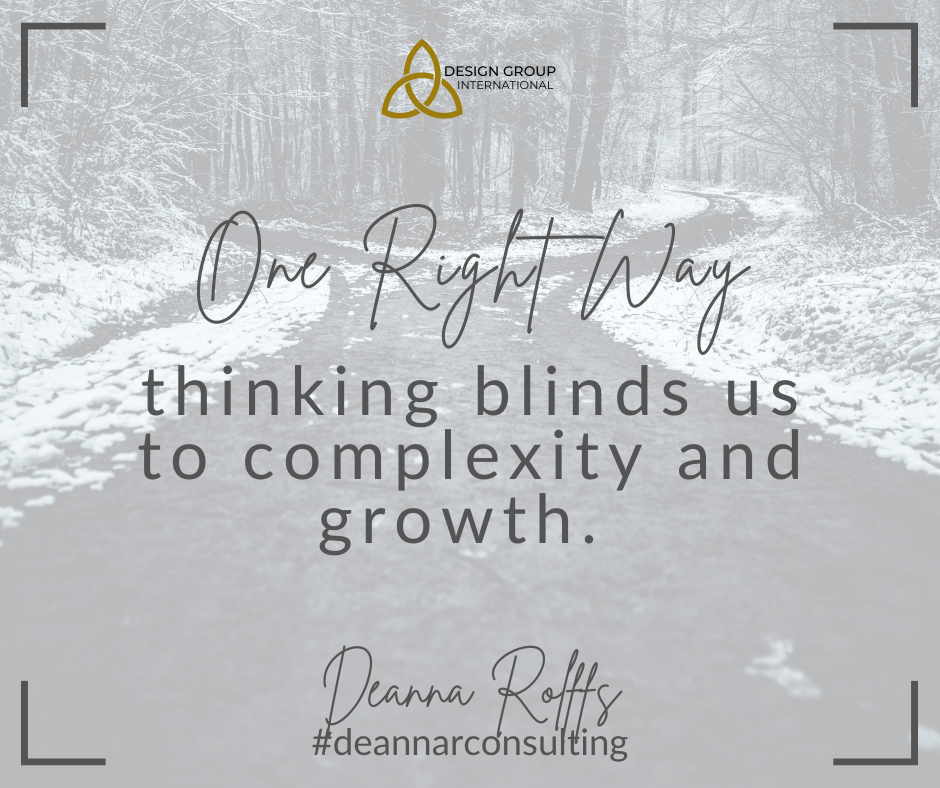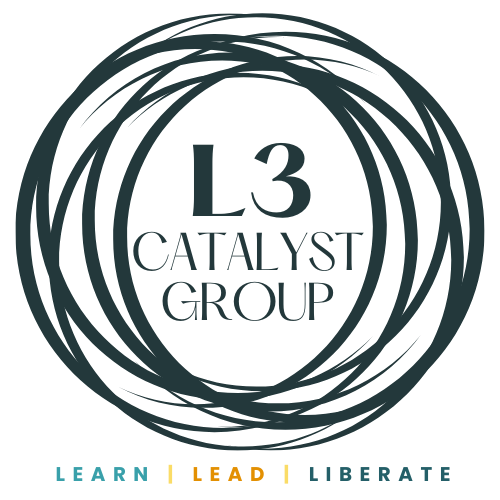Leadership + One Right Way
Illuminating White Supremacy Culture Part 3
I received a failing grade on my first paper in graduate school. Dr. Jelier taught the class, and I was his graduate assistant. He took the time to ask me inquiry questions such as:
- What was writing this paper like for you?
- How do you think you did?
I shared that I was stuck trying to make a case that no one would disagree with. I was aware that my written thoughts spun in circles.
He kindly said, "Think about all of the professors in this department. Do you think we all agree on this topic?" "No," I answered.
I thought the goal was to demonstrate the brilliance of my One Right Way thinking, but One Right Way didn't exist.
Parts 1 and 2 of this series defined White Supremacy Culture's Characteristics and unpacked Perfectionism.
This post unpacks the trap of thinking there is only One Right Way.

One Right Way thinking blinds us to complexity and growth.
It traps us behind bars of our own making, distancing us from each other and from learning.
One Right Way thinking is exhibited when:
- The belief there is one right way to do things, and once people
 are introduced to the right way, they will see the light and adopt it
are introduced to the right way, they will see the light and adopt it - When a person or group does not adapt or change to "fit" the one right way, then those defining or upholding the one right way assume something is wrong with the other, those not changing, not with us
- Similar to a missionary who sees only value in their beliefs about what is good rather than acknowledging the value in the culture of the communities, they are determined to "convert" to the right way of thinking and/or the right way of living (Okun, White Supremacy Culture - Still Here, 2021)
Do you see evidence of One Right Way thinking in yourself, your relationships, or your organizations?
Many years later, I'm still grateful to Professor Jelier for illuminating my One Right Way thinking. His support helped me understand and grow. He even used my rewritten paper as an example to share with other students.
Leadership pedagogy is steeped in One Right Way thinking.
It reinforces our toxic exceptionalism and breaks down bonds that could grow belonging.
Okun shares some antidotes to One Right Way thinking:
- Create a culture of inquiry about what constitutes the "right way"
 and what defines a "mistake."
and what defines a "mistake." - Build in an understanding that every approach yields unintended consequences and even the most strategically made decisions will have unanticipated consequences.
- Look for the tendency for a group or a person to keep pushing the same point over and over out of a belief that there is only one right way and then name it.
- Work on developing the ability to notice when you become defensive and/or insistent about doing something your way and do everything you can to take a breath; allow yourself room to consider how a different path or paths might improve your approach and/or offer you something you really need (Okun, White Supremacy Culture - Still Here, 2021)
Where can you apply these antidotes to One Right Way thinking? How can you practice curiosity about a person or idea that you think is wrong?
Fellow leaders and learners, I wish you courage and resilience for the journey.


What I'm Reading:

Questions for Consideration Regarding This Topic:
-
-
- Do you see evidence of One Right Way thinking in yourself, your relationships, or your organizations?
- Where can you apply these antidotes to One Right Way thinking?
- How can you practice curiosity about a person or idea that you think is wrong?
-

Related Leadership & Learning Letter Topics:

March 8, 2023




Comments